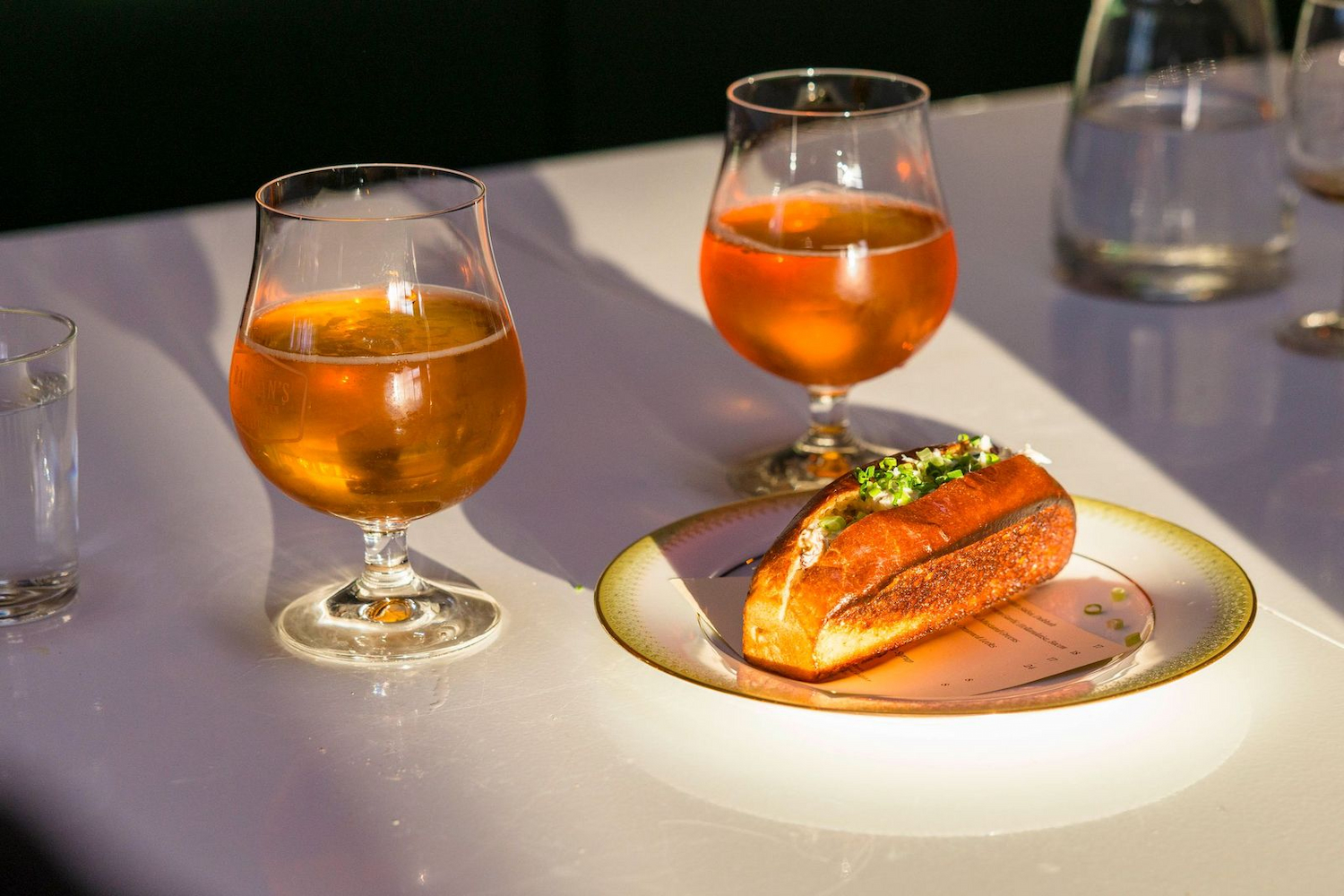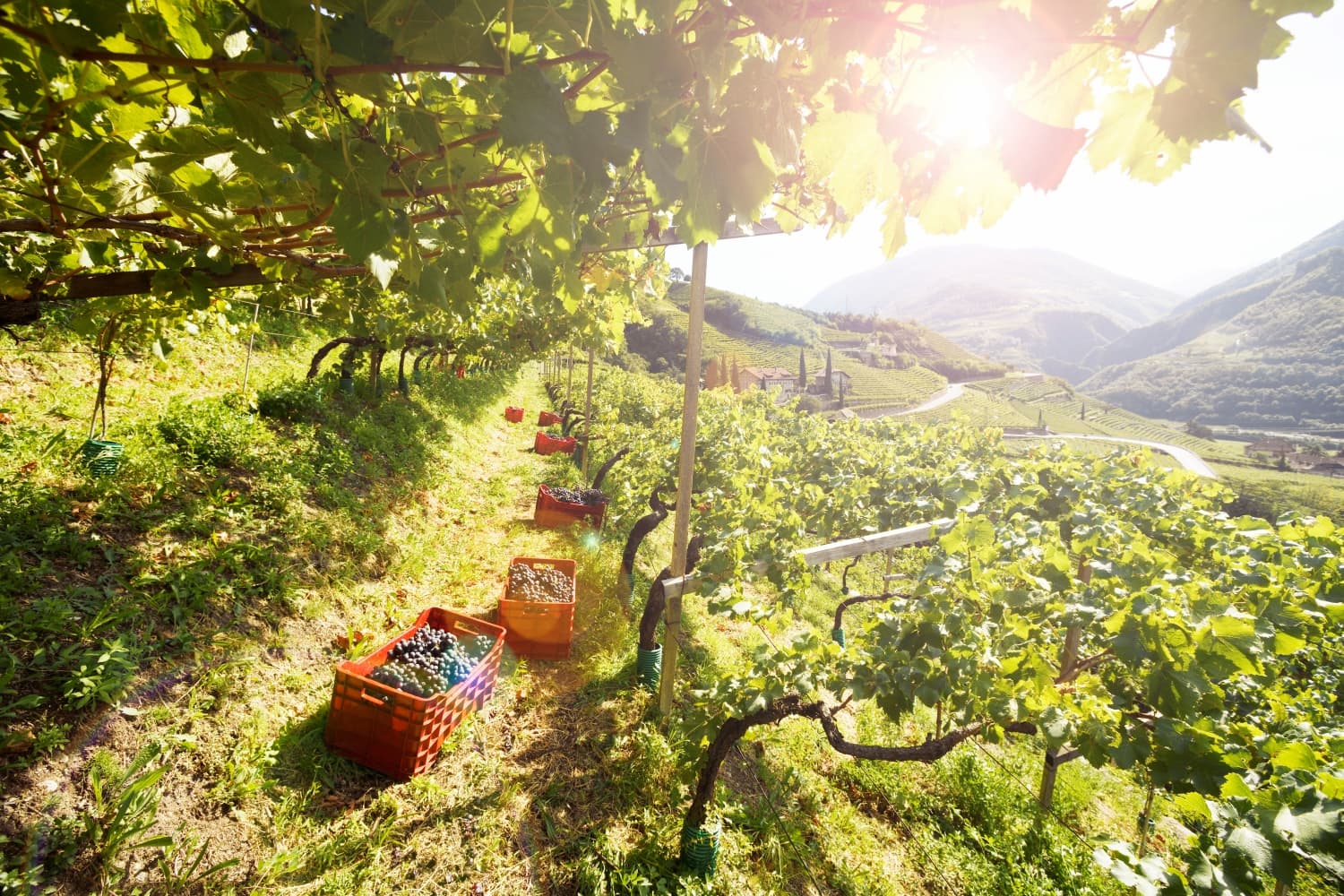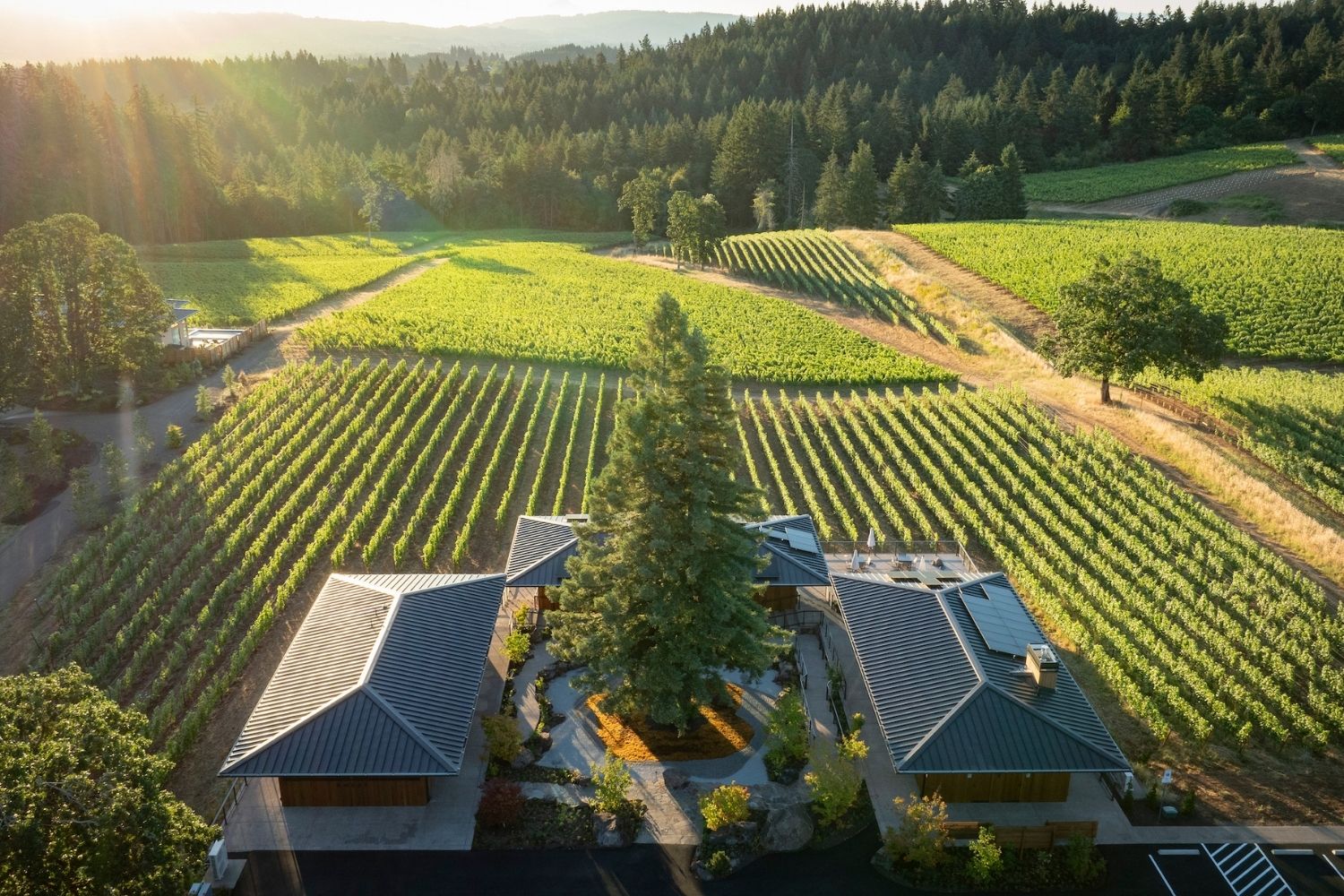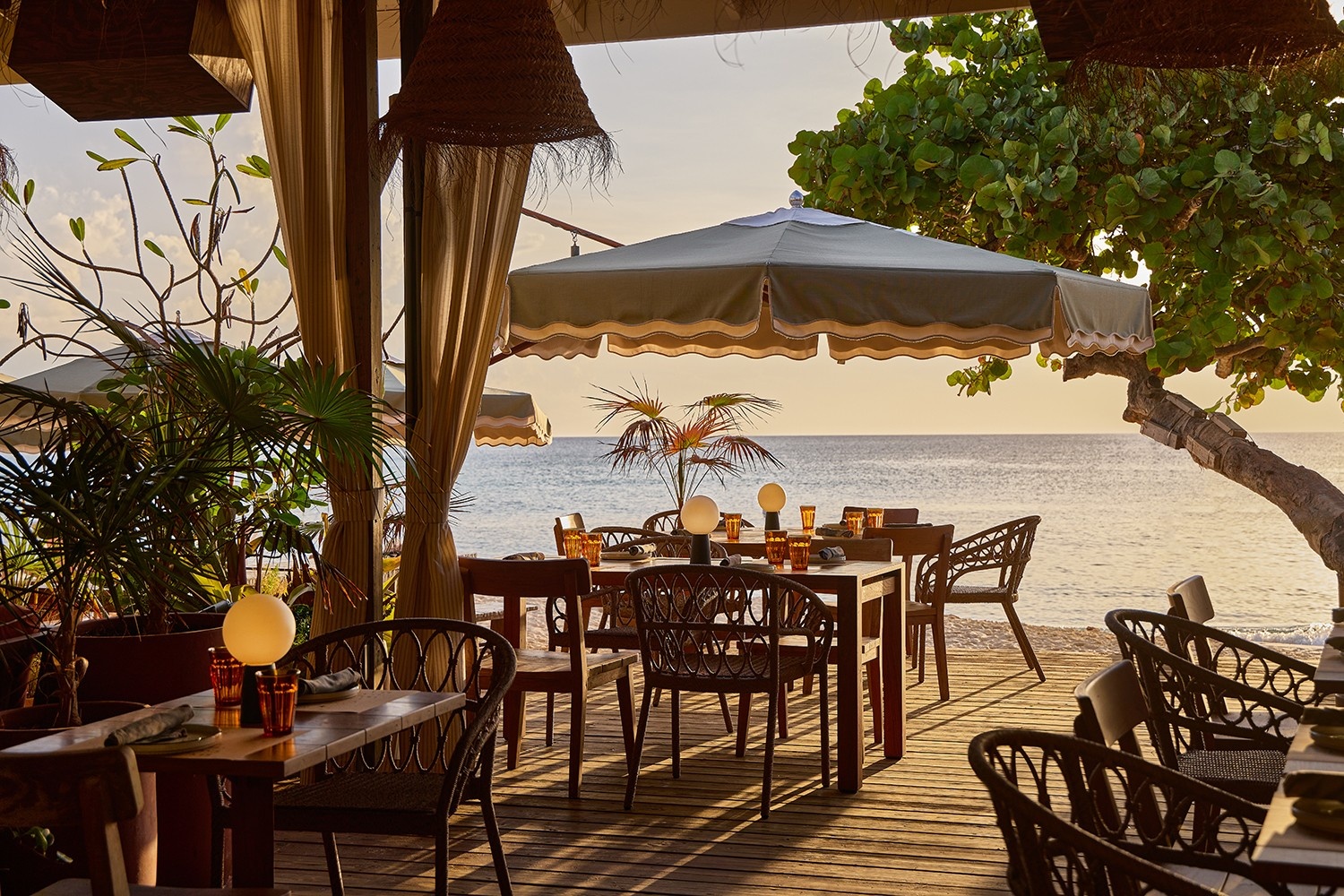North Stars:

Community Support

Production & Consumption

Heritage Value
“This method feels like watching the postscript at the end of a movie.”
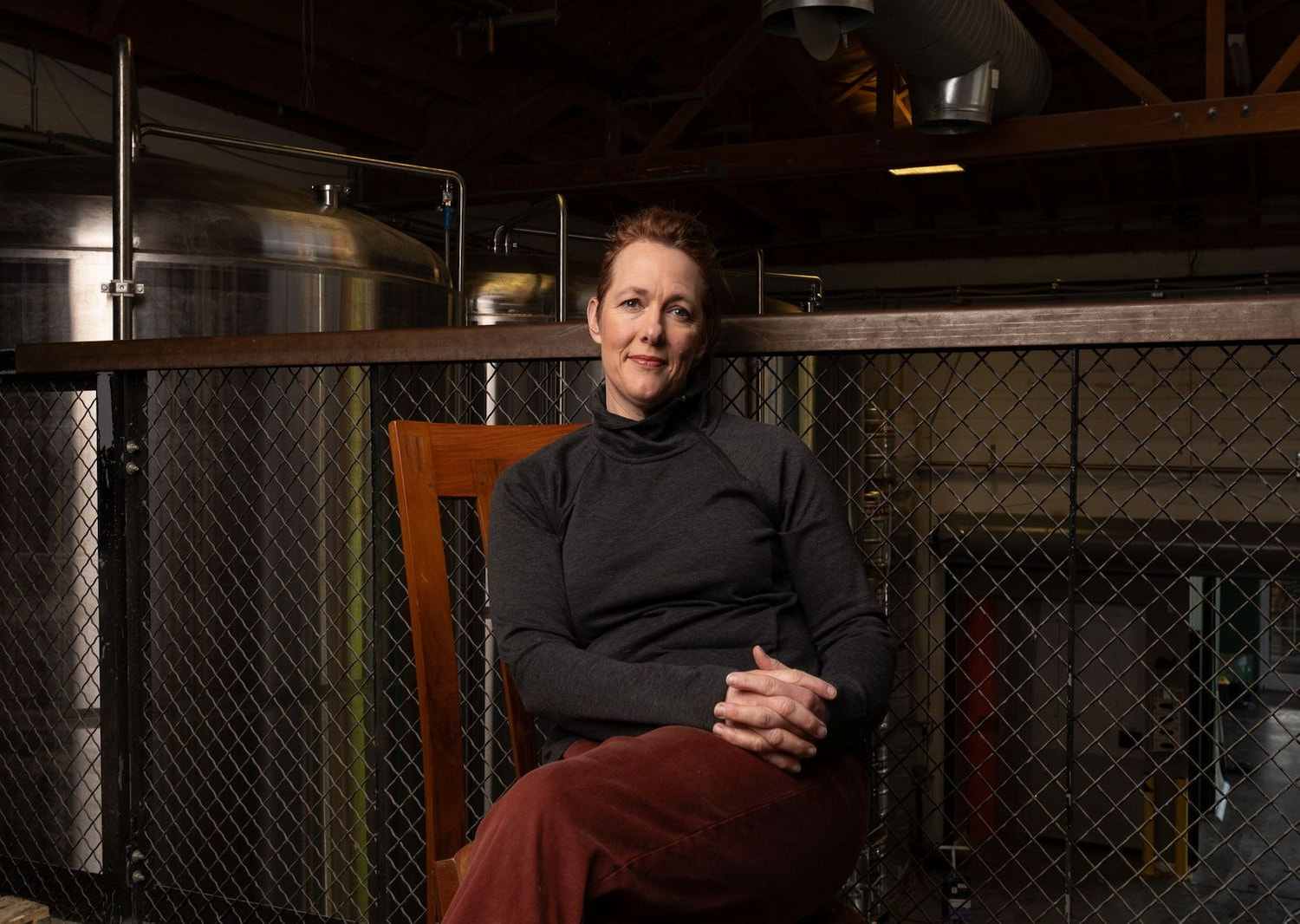
Christine Walter in front of her fermentation tanks. Courtesy of Cole Burchiel.
The Azure Road Take
Late on a summer Saturday afternoon, Bauman’s on Oak in Portland buzzes with locals pouring in for pints and plates. Sips of pet nat cider pair with yeasty, flavorful house-baked bread — a natural combo, given fermentation drives the creativity and flavor of both.
In 2024, Christine Walter opened this taproom for Bauman’s Cider inside the former Ecliptic Brewing Moon Room, a spacious, repurposed brewery with seating for around 230 people. The breezy setting, defined by striking green tiles and lush plants, belies a serious back-of-house operation: a food program and cider production operation that begins 24 miles south on Walter’s fifth-generation family farm in Gervais.
Walter started Bauman’s using apples from her family’s farm and neighboring orchards — the kind of “ugly fruit” that gets passed over by grocery buyers yet makes great cider. She’s drawn to traditional fermentation methods that embrace unpredictability. One she’s returned to often is pétillant naturel, a style that finishes fermenting in the bottle and never turns out quite the same twice.
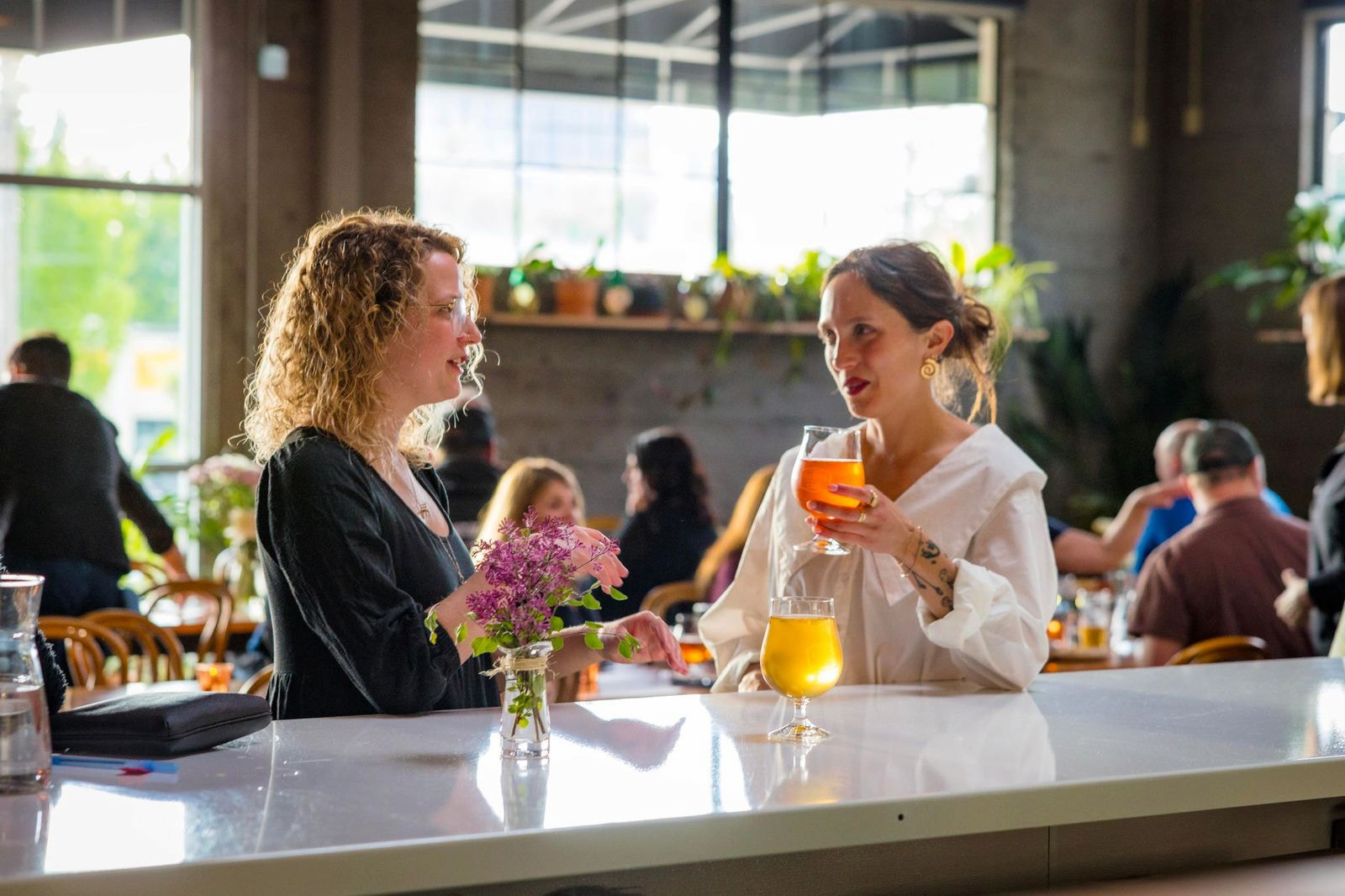
Locals sipping ciders at the bar at Bauman's. Courtesy of Brandon Buza.
Sustainability Chops
Cidermaking, as Walter points out, is inherently one of the most sustainable forms of fermentation. “We primarily use discarded or rejected apples that are deemed unsuitable for the grocery market and would otherwise be wasted,” she says.
That fruit is pressed on-site at the family farm without boiling or heating. Fermentations often run at ambient temperatures, keeping energy use low compared to brewing or distilling. Fruit additions — like the loganberries used in one of Bauman’s signature ciders — are either grown on the farm or sourced within 30 miles. The farm also uses low-intervention orchard practices and an integrated pest management program to reduce pesticide use.
In 2024, as production volume grew, Walter moved part of the cidery into the former brewery in Portland. She wanted to ease pressure on the farm’s well and septic systems. She also harbors the dream of building a LEED-certified, carbon-neutral production facility on the farm. In the meantime, the team remains committed to making better, more sustainable packaging and sourcing choices. For example, Christine has completed a carbon footprint analysis of Bauman’s inputs and outputs, helping her find ways to reduce her company’s environmental impact.
As for community engagement, Bauman’s regularly hosts cider festivals to raise funds for scholarships for farmworkers’ children and to support local childcare and healthcare programs. As a woman-owned business, Walter also focuses on hiring women, offering flexible scheduling, and providing internships and scholarships.
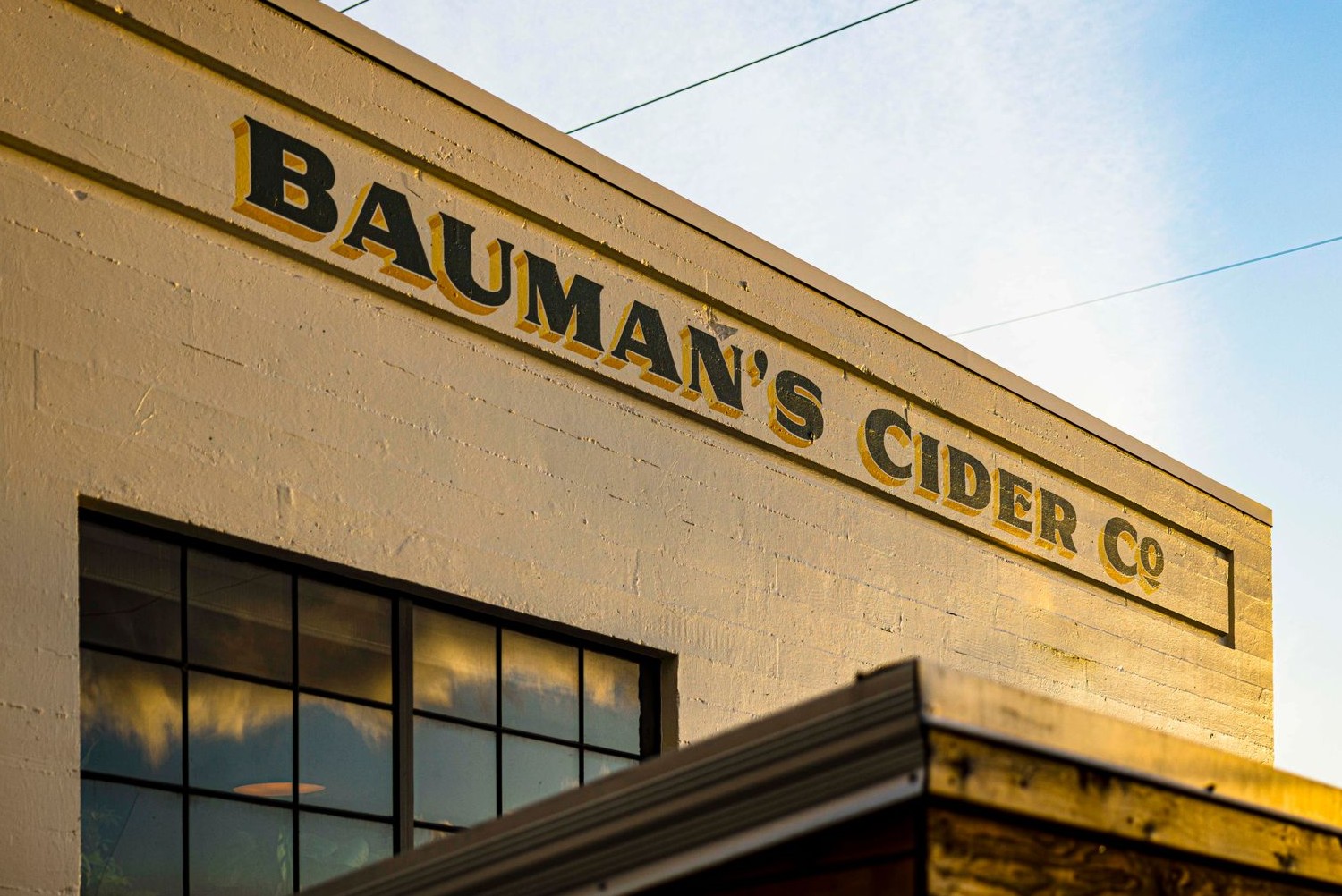
Exterior shot of Bauman's Cider Co. Courtesy of Brandon Buza.
The Sip
While the taproom features a dozen different ciders, Bauman’s pet nat version is particularly captivating. The process to make it compares to wine or the pétillant naturel method. In the case of cider, Walter bottles it while it’s still sweet, before fermentation finishes. The final carbonation develops naturally in the bottle, and no two batches turn out the same.
“We bottle ciders right off the tank, in process, when it still has fermentable sugars,” says Christine. “We then allow the final stage of primary fermentation to happen in the bottles, producing exquisite carbonation without the need to add additional yeast or sugar.”
It’s the cider-world equivalent of a fingerprint. “To me, this method feels like watching the postscript at the end of a movie where we learn what happens to the characters after the curtain comes down,” she adds.
Each batch is pressed on the farm, using apples grown either on the Bauman property or nearby. There’s no pasteurization, no blending to standardize flavor — just raw cider, finished in the bottle.
On the palate, the unfiltered drink tastes completely dry, finishing with a fine mousse not unlike the bubbles in Champagne. With a hint of tannic grip from the apple skins and broad earthy aromatics, Bauman’s pet nat cider drinks more like a good natural wine — structured and clean but a little wild around the edges.
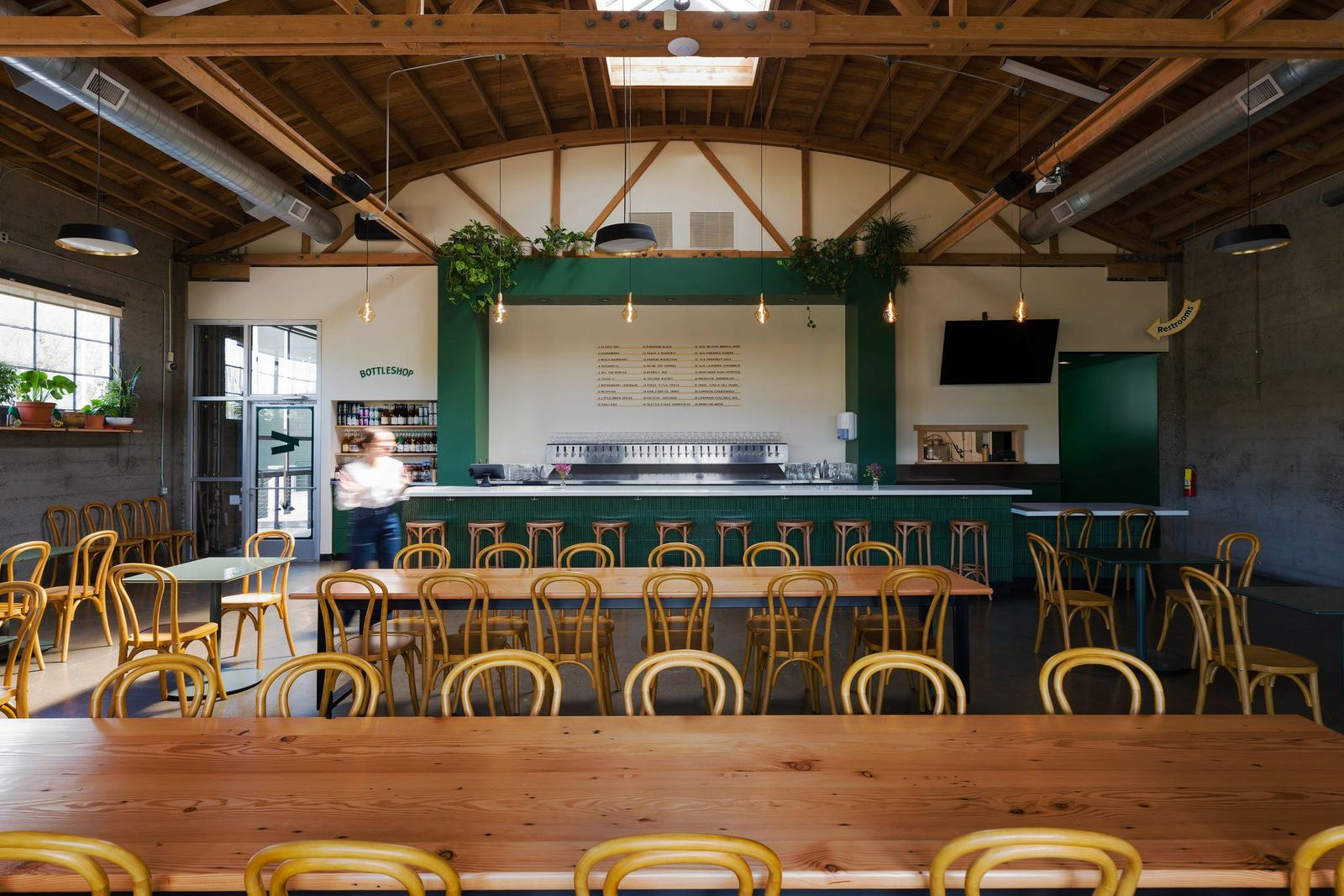
Bauman's on Oak, Interior View. Courtesy of Brandon Buza.
Origin Story
“My Great-Great Grandmother established this farm as a homestead in 1895, and there are over 70 acres of heritage apple trees currently in use,” says Christine. “Many of my family members — siblings, aunt and uncle, and cousins — still assist with everything from orcharding and pressing, to events and pouring. The heart of our cider-making is still on the farm in Gervais.”
Walter launched the cider business in 2015 as a way to keep the family farm viable at a time when small-scale growers in the Willamette Valley were struggling. “We took the farmers’ market model and made our own market,” she explains.
Over time, Bauman’s Farm evolved into a local gathering place with seasonal produce, cider tastings, hay rides, holiday events, and classes on gardening and crafting. While part of production has moved to Portland, the long-term plan is to return it to the farm — once the new water treatment system is in place to support sustainable growth.
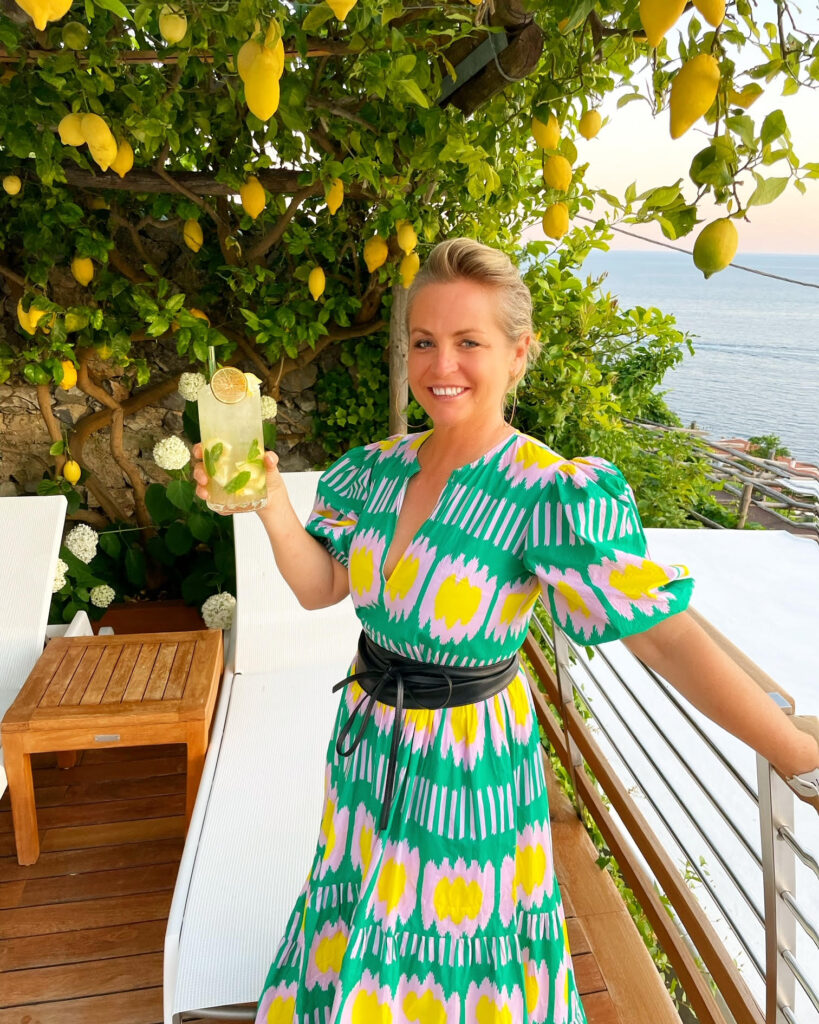
Founder and CEO of Azure Road, Lauren Mowery is a longtime wine, food, and travel writer. Mowery continues to serve on Decanter Magazine’s 12-strong US editorial team. Prior to joining Decanter, she spent five years as the travel editor at Wine Enthusiast. Mowery has earned accolades for her writing and photography, having contributed travel, drinks, food, and sustainability content to publications like Food & Wine, Forbes, Afar, The Independent, Saveur, Hemispheres, U.S. News & World Report, SCUBA Diving, Plate, Chef & Restaurant, Hotels Above Par, AAA, Fodors.com, Lonely Planet, USA Today, Men’s Journal, and Time Out, among others.
Pursuing her Master of Wine certification, she has also been a regular wine and spirits writer for Tasting Panel, Somm Journal, VinePair, Punch, and SevenFifty Daily. Mowery is a graduate of the University of Virginia and Fordham Law School, and she completed two wine harvests in South Africa.
Follow her on Instagram @AzureRoad and TikTok @AzureRoad
North Stars: Community Support, Heritage Value, Production & Consumption


